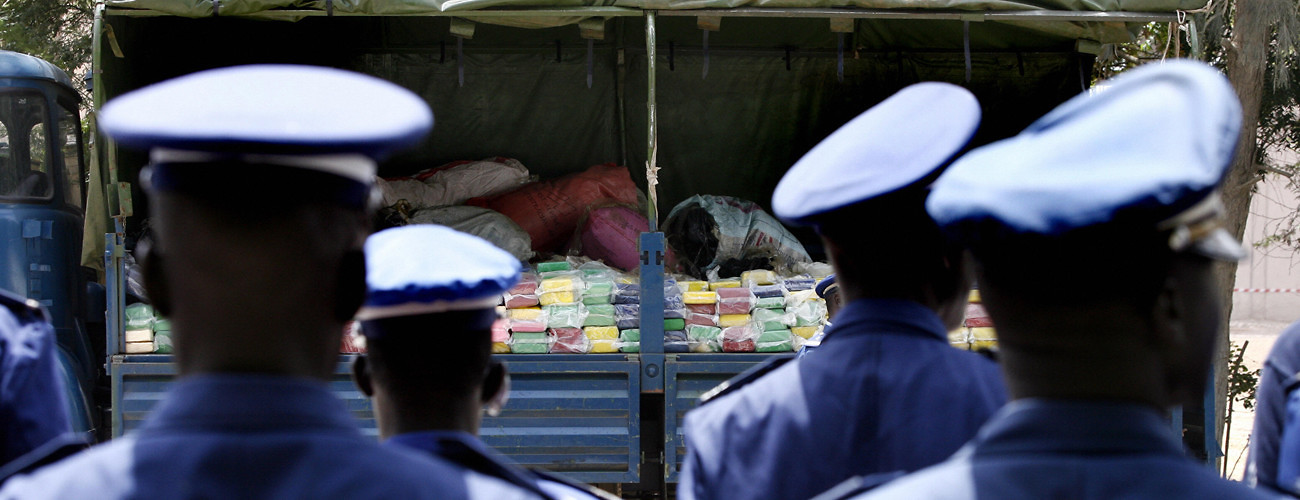Gendarmes guard a truck with part of a seized cocaine haul at a cement furnace in Rufisque, near Dakar, August 2, 2007. (Georges Gobet/AFP/Getty Images)
An invisible tide is rising on the shores of West Africa, creeping into its slums, its banks, its courts, its barracks, and its government ministries.
It is a tide of money, influence, and power, born from the drug trafficking that is sweeping the region. As the Executive Director of the UN Office on Drugs and Crime (UNODC), Antonio Maria Costa, recently said, “Drug money is not only buying real estate and flashy cars: it is buying power.”
The international community is only just beginning to grasp the scale of this problem. It has no clear strategy for responding to, or even for containing, the risks the invisible tide poses for human, national, and international security in West Africa and beyond, including in Latin America and Europe. Drug trafficking through West Africa risks destabilizing that region, fueling militancy and drug trafficking in Latin America, and militarizing Europe’s relations with West -– and parts of North -– Africa. The human toll will be severe.
In this IPI paper, “The Invisible Tide: Towards an International Strategy to Deal with Drug Trafficking Through West Africa,” then-IPI associate James Cockayne and Phil Williams, Director of the Matthew B. Ridgway Center for International Security Studies at the University of Pittsburgh, explain what these risks are, and recommend steps that policymakers in national capitals and multilateral institutions might take to address them in the next three to five years.
Related News Coverage
West Africa at Risk From Latin American Gangs (Next, an online journal in Nigeria)








